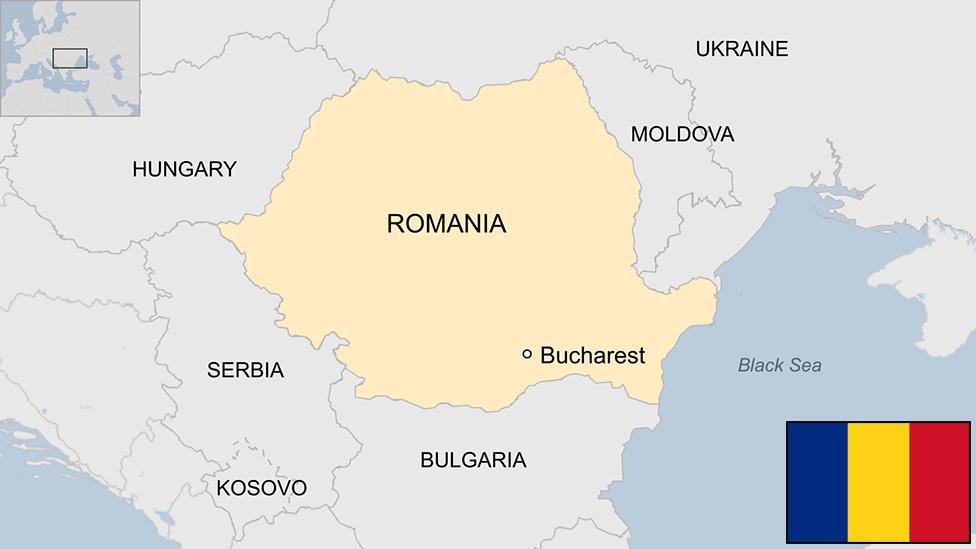Alarm over Romania's bitter Ponta-Basescu turf war
- Published
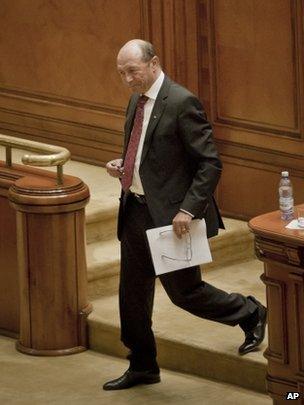
President Traian Basescu has been forced to leave office pending a referendum
Romania's deep political rivalries have broken out into a turf war that has caused alarm in Brussels and that the opposition has compared to a coup.
President Basescu left the Cotroceni Presidential Palace in Bucharest on Tuesday morning, driving his own car, a Romanian-built Dacia Logan, closely followed by his bodyguards in another vehicle.
An hour later, Acting President Crin Antonescu arrived from the Senate to take his place. Each day in Romania brings new political drama, with tempers frayed by a fortnight of record high summer temperatures, and the attempted suicide and imprisonment for corruption of a former Prime Minister, Adrian Nastase.
The Constitutional Court has ruled that the government of the current Social Democrat Prime Minister Victor Ponta acted legally when it suspended President Traian Basescu on 6 July.
But it has also added a passage to the referendum law, which requires a majority of the population to take part in the referendum for the result to be valid.
This clears the way for the referendum on the future of Mr Basescu to take place on 29 July - but makes it harder for his opponents to oust him. If they do, the result will gain added legitimacy.
Frontal attack
The Social Liberal Union came to power without an election in May. The collapse of two centre-right, Liberal Democrat governments in a row, and a wave of defections by Liberal Democrat deputies, cleared the way for Victor Ponta's government.
The current manoeuvring can be seen as preparation for parliamentary elections due in November. But a series of moves by the Ponta government has set alarm bells ringing in Berlin, Brussels and Washington.
"We are concerned by the speed and consequences of decisions taken over the last few weeks," EU spokeswoman Pia Ahrenkilde said on Tuesday.
Mr Ponta is due to meet European Commission President Jose Manuel Barroso on Thursday to explain his government's actions.
In the past month, the Ponta cabinet has replaced the speakers of both houses of parliament, the ombudsman and other top public officials with its own loyalists, as well as launching a frontal attack on President Basescu, and on the Constitutional Court.
It has also issued 40 emergency decrees in its first two months in office.
"The federal chancellor believes it is unacceptable when a European Union country infringes the fundamental principles of the rule of law," said Angela Merkel's spokesman Steffen Seibert, after the German leader spoke to President Basescu on Monday.
"I am seriously concerned about recent attacks on the independence of the Constitutional Court of Romania," the European Justice Commissioner Viviane Reding commented last week.
The moves have provoked a dramatic fall in the value of the leu, the Romanian currency. The fate of a 5bn-euro (£4bn; $6.1bn) loan to Romania, granted by the IMF, also hangs in the balance.
Supporters of Mr Basescu have counter-attacked, accusing Mr Ponta of plagiarism over his doctoral thesis, and calling for his resignation.
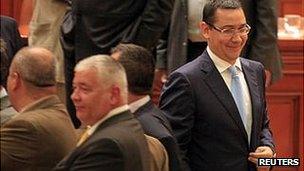
Mr Ponta seems in danger of becoming the black sheep of the EU
Victor Ponta risks taking over the role of the black sheep of the European Union from his namesake Viktor Orban, Hungary's conservative prime minister.
"Victor Ponta has repeated in 10 days what Traian Basescu took eight years to do - the style of governing is rather similar," said Christian Mititelu, a political commentator in the Romanian capital, Bucharest.
"He may not be breaking the letter of the law, but, like Basescu, he is pushing the spirit of the constitution to its extreme limits."
Basescu fightback
A former captain in the Romanian merchant navy, Traian Basescu narrowly defeated Adrian Nastase in the 2004 election, and has frequently intervened in the day to day running of the country, during the rule of a series of weak governments, ideologically close to him.
In 2007, he dodged impeachment in an earlier referendum, then was re-elected for five years in 2009.
His strong backing for austerity measures in 2010, which included slashing the salaries of civil servants, pensions and unemployment benefits, won him allies abroad in pro-austerity Europe, but many enemies at home.
Growing disenchantment with the governments of Emil Boc and Mihai Razvan Ungureanu led to street protests and the fall of both from power.
Romania's internal dispute has divided the European political elite, with some social democrats leaping to Mr Ponta's defence, while conservatives react with alarm.
Romanians appear weary of such bitter feuds. There was little support for President Basescu before, but the sheer speed with which the Ponta government has moved against him has shocked many.
After eight years in office, with strong connections in Europe, and deep loyalty among Romanian journalists, Mr Basescu is winning the information war against a Ponta administration which underestimated the influence of the media.
Mr Basescu's team must now decide whether to press for a No vote in the referendum, or a boycott, in the hope of keeping turnout below 50%.
- Published9 July 2012
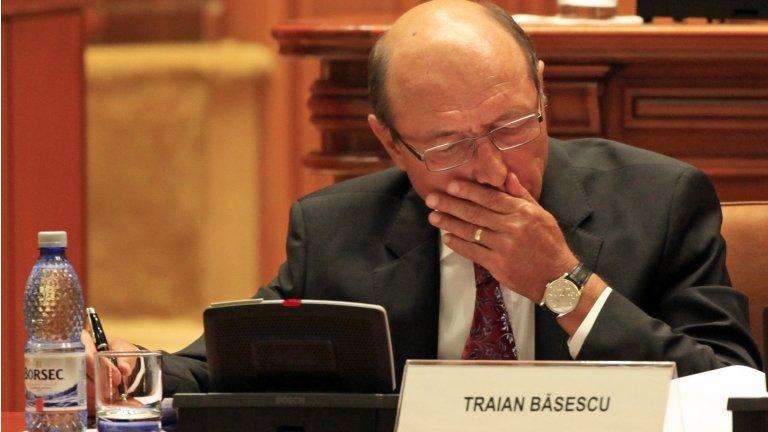
- Published6 July 2012
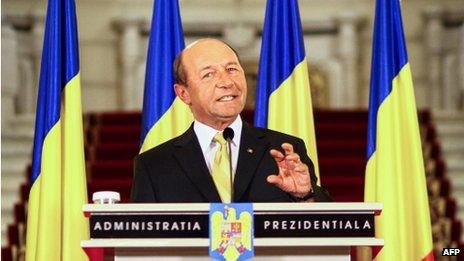
- Published19 June 2012
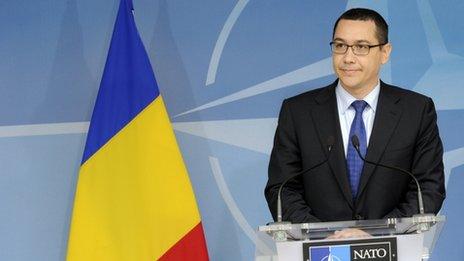
- Published1 May 2012
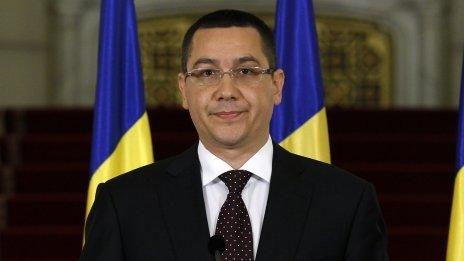
- Published18 December 2024
